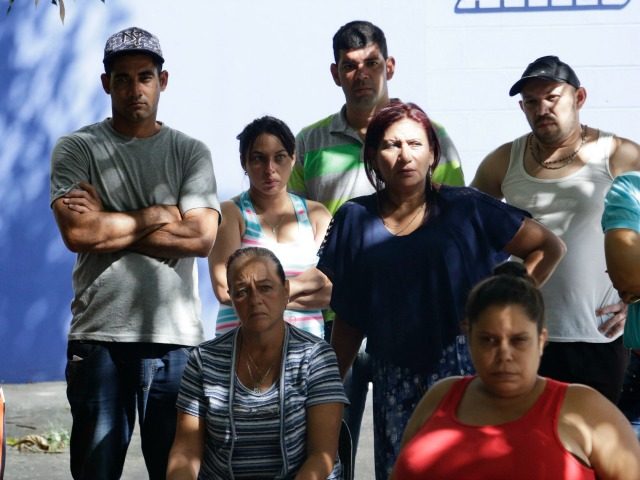The sudden closure of the U.S. “wet foot, dry foot” policy that allowed Cuban migrants to remain in the United States if they reached the mainland has stranded many Cubans in South America and in Central America.
Thousands of Cubans use South America and Central America as a bridge to the United States. There are at a minimum hundreds of Cubans now stranded south of Texas because President Barack Obama shut the 51-year-old door to the United States, just one week before his successor is inaugurated.
Since 2012, at least 100,000 Cubans traveled up to 7,000 miles to the United States’ land border with Mexico, via various countries in South and Central America, including Brazil, Venezuela, Colombia, Panama, Costa Rica, Nicaragua, Guatemala, and then Mexico.
Spanish news agency EFE quotes Guillermo Cochez, Panama’s former ambassador to the Organization of American States (OAS), saying that the end of the “wet foot, dry foot” policy will be an additional burden for the Panamanian government and for all Central American governments that have “Cubans in transit to the United States.”
“I do not think that the government of Panama will deport them… where are those people going to go now? They’re going to have to request an immigration status in Panama or in Costa Rica or anywhere else,” Cochez told EFE.
Asked about what would be a satisfactory solution for Panama, the former ambassador said that country needs to reach an agreement with the United States on the fate of the Cubans “who are already here or in other countries.”
Meanwhile, other analysts, such as Nils Castro, Panama’s former ambassador to Mexico, consider Obama’s change in policy a relief for Central America, notes EFE.
According to U.S. government figures, more than 45,000 Cubans made it to the U.S. mainland in 2016, including 41,000 across the Southwest border. The 2016 figure nearly doubles the 25,000 who entered the United States in 2014, before President Obama chose to reestablish diplomatic relations with Cuba’s Communist Party.
In August 2016, the foreign ministers of Colombia, Costa Rica, Ecuador, El Salvador, Guatemala, Mexico, Nicaragua, Panama and Peru sent a letter to U.S. Secretary of State John Kerry, urging the United States to “analyze and revise” its immigration policy towards Cuba, noting that it provides an “incentive to the disorderly, illegal, unsafe flow of Cuban citizens.”
Several Spanish-language news outlets have reported on the “despair” and “anguish” among hundreds of stranded Cubans in Central America and Mexico who can no longer enter the United States because of Obama’s concession to the Cuban government.
Jose Enrique Manresa, a 47-year-old who learned of the change in policy eight days before he had been expected to finish his journey to the United States, told BBC via telephone from Mexico, “We lost everything. What hopes can I have if we can not go to the United States? ”
“It was not worth the whole trip we made — risking our lives, our health,” he also said.
“There is a great sadness. Nobody ate today [Thursday],” he added, referring to the other Cubans who are traveling with him. “Everyone is desperate, calling their family. We call family members we have in Cuba and they are screaming in anguish.”
His comments came after having paid $10,000 to travel through various Latin American nations for 48 days along with his daughter.
Other Cubans affected by the change in U.S. policy have expressed similar sentiments.
“We have sold all the furniture for this,” decried Gabriel Alejandro Marin, one of 50 Cuban immigrants in Panama city, reports Diario Las Americas.
“Obama f*cked all Cubans,” reportedly added Yadiel Cruz, identified as a 33-year-old man who left Cuba on December 6.
“It was a shock to us, similar to getting your the oxygen cut off,” also said Ivan Diaz, a 45-year-old who paid $25,000 to leave Cuba three months ago en route to the U.S. with his wife.
Diaz, who has been able to reach southern Mexico, said that he only has $10 left in his pockets, but added that he remains optimistic and has decided to continue his journey.
“We will travel to the border to see what they tell us… if nothing can be done, deport me to Cuba,” declared Diaz.
Javier Carrillo, head of the National Migration Service of Panama, noted that the change in U.S. immigration policy will not prevent Cubans from traveling to the United States illegally.
“There will be other” illegal immigrants traveling through Panama, including Cubans, who “will continue to risk” making such journey on their way to the United States, warned Carrillo.

COMMENTS
Please let us know if you're having issues with commenting.